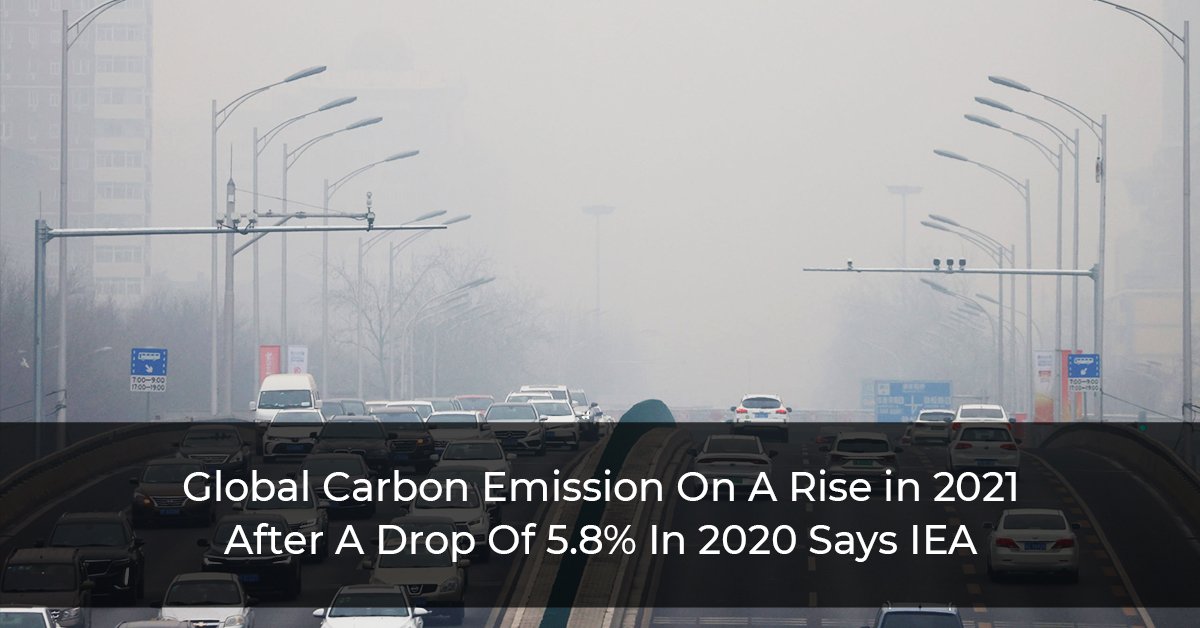Highlights:
- Global Carbon Emission dropped by 5.8% in 2020
- Apart from China, not a single country saw an increase in emission in 2020
- After a drop in Carbon Emission in 2020 on a global level, it is rising again in 2021
The global Carbon Dioxide (CO2) emission in the year 2020 had dropped by 5.8% as the COVID-19 induced pandemic brought economies to a standstill which had started rebounding in December 2020 and are on course to rise further, said the International Energy Agency (IEA) on Tuesday.
The IEA said that the drop of 5.8% was the largest annual drop in global energy-related carbon dioxide emissions since the Second World War, and added that this must serve as a stark warning to the policymakers.
The Executive Director of IEA, Fatih Birol said, “The rebound in global carbon emissions towards the end of last year is a stark warning that not enough is being done to accelerate clean energy transitions worldwide”.
China, which is the world’s biggest emitter of greenhouse gases, was the only country in 2020 that experienced an increase in its emissions; it rose 0.8%, or 75 million tonnes, from 2019 levels, IEA said.
India, which is the third largest emitter of greenhouse gases, the emission levels rose above the 2019 levels from last September as economic activity increased on the back of easing lockdowns.
As travel and economic activity started picking up pace around the globe, oil consumption and its emissions are rising again in 2021. IEA has said that the record increase in the sales of electric vehicles (EV) is insufficient to offset the growth in emissions which is being caused by the uptick in road traffic around the world.
Birol said, “If current expectations for a global economic rebound this year are confirmed, and in the absence of major policy changes in the world’s largest economies, global emissions are likely to increase in 2021”.
In 2020, the global emission by the electricity sector dropped by 450 million tonnes which resulted partly from the decrease in the demand for electricity but IEA says it was also due to the increase in electricity generation by solar photovoltaic and wind.
IEA said, “For the world to achieve the climate goals of the Paris Agreement, notably of limiting global warming to well below 2°C, a decline in electricity sector emissions of around 500 million tonnes would need to occur every single year. “Even greater annual drops in emissions from electricity generation would be required to put the world on a path in line with warming of 1.5 °C”.


